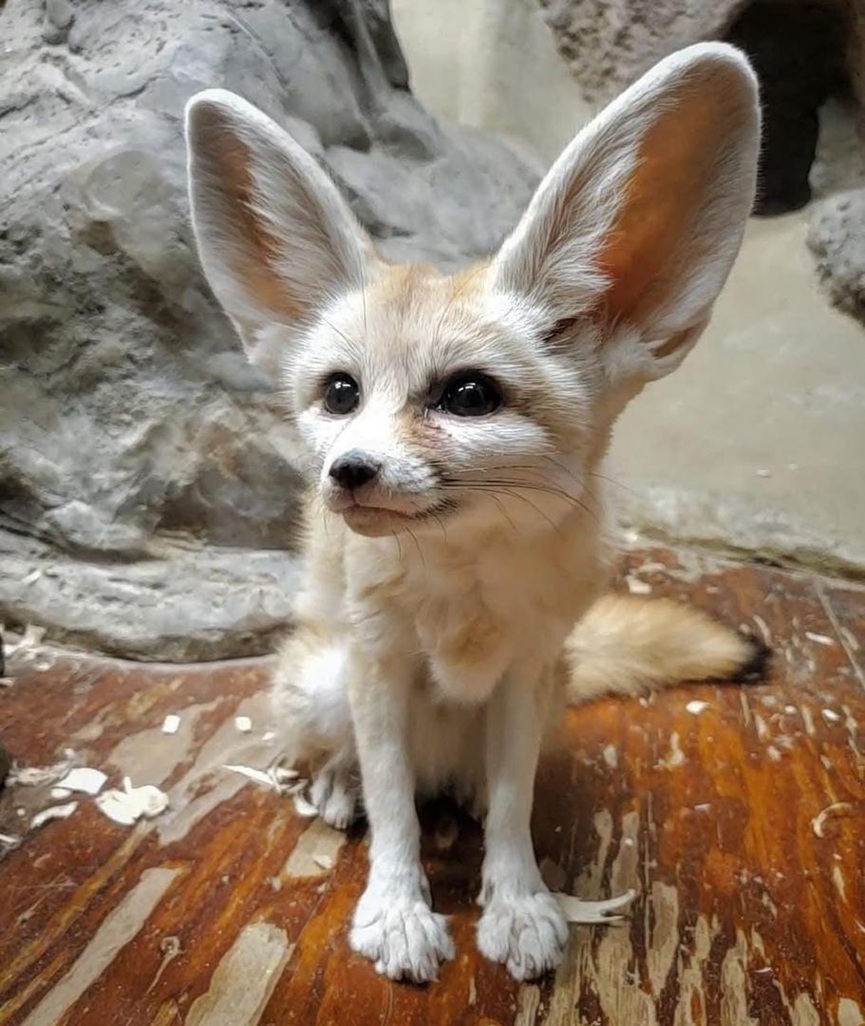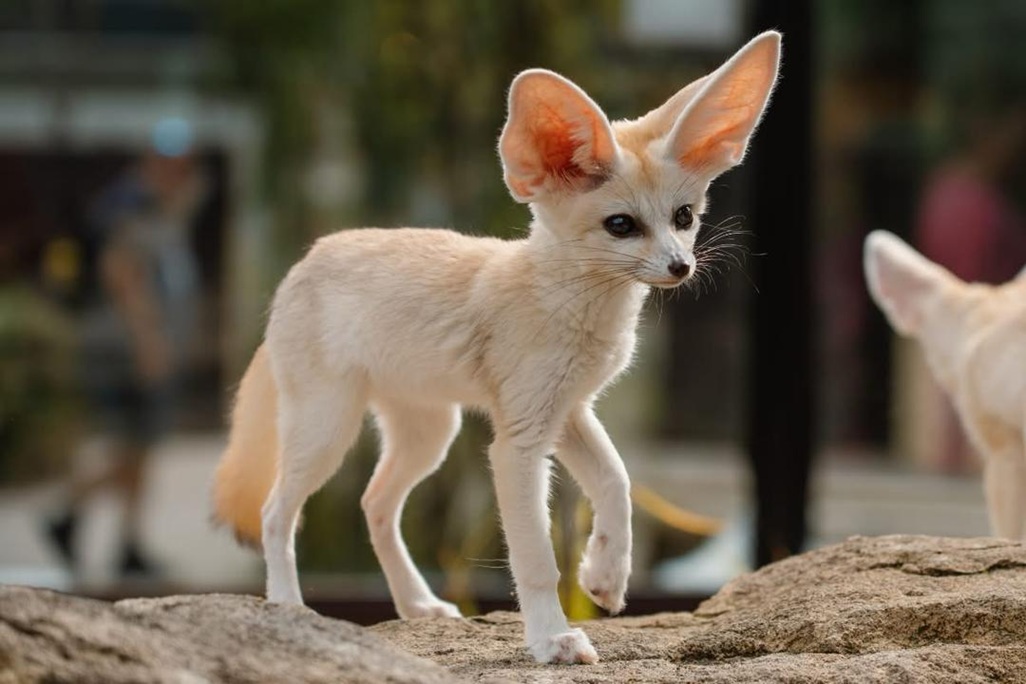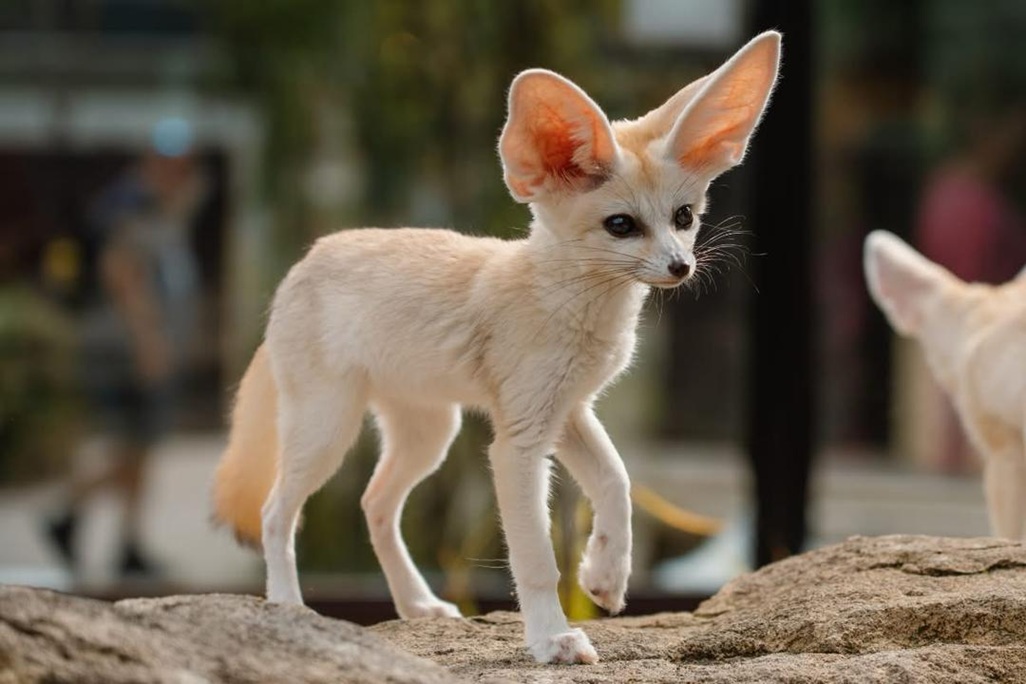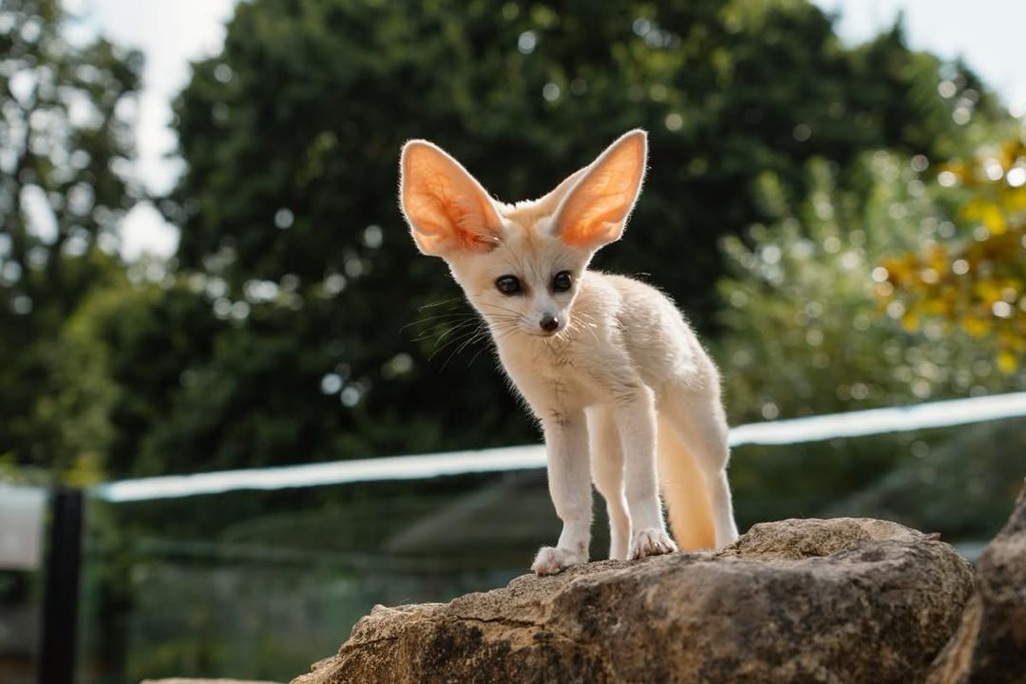Description
Fennec Fox for Sale: The Ultimate Guide to These Amazing Pets
The Fennec Fox is a small, adorable creature native to the deserts of North Africa. Known for its large ears, fluffy coat, and playful demeanor, the Fennec Fox has become an increasingly popular exotic pet in recent years. However, before considering purchasing a Fennec Fox, there are several things to understand. This comprehensive guide will cover everything you need to know about Fennec Foxes, including their natural habitat, care requirements, ethical considerations, and the implications of buying a Fennec Fox.
Whether you’re curious about having a Fennec Fox as a pet or you’re researching the topic for the first time, this article will provide detailed information on the responsibilities involved, and the legal and ethical factors to consider before purchasing one.
1. What is a Fennec Fox?
The Fennec Fox (Vulpes zerda) is the smallest species of fox, typically weighing between 2-3.5 pounds and standing about 9 inches tall. They are easily recognizable due to their large ears, which can be up to 6 inches long, and their soft, cream-colored fur. These foxes are well-adapted to the harsh desert environment, thanks to their keen sense of hearing, ability to conserve water, and nocturnal lifestyle.

Fennec Foxes are often considered one of the most adorable and unique exotic pets. They are social animals, and in the wild, they live in small groups that help them protect each other from predators and conserve heat during the desert’s cold nights.
Their small size, inquisitive nature, and cute appearance have made them desirable pets in various parts of the world. But with the growing popularity of these animals, it is essential to understand their care needs, legal status, and environmental impacts before deciding to bring one home.
2. Why Are Fennec Foxes So Popular as Pets?
Fennec Foxes have earned a reputation for being “cute” and “playful,” which makes them especially popular among exotic pet enthusiasts. Their big ears, bushy tails, and small, adorable faces make them look like living toys, contributing to their allure.
Here are some reasons people are interested in owning Fennec Foxes:
- Unique Appearance: Their distinctive ears and fluffy coats are not commonly found in other pet species, which makes them stand out.
- Small Size: Compared to other types of foxes, the Fennec Fox is quite small and can be kept in a relatively small space, making them an attractive option for urban dwellers who want an exotic pet.
- Intelligent and Playful: Fennec Foxes are highly intelligent and can learn commands, perform tricks, and engage in playful activities. Their curiosity and playful nature make them entertaining companions.
- Nocturnal Nature: As nocturnal animals, they tend to be more active during the evening and nighttime, which might appeal to people with nighttime work schedules or late-night lifestyles.
However, despite their adorable nature, owning a Fennec Fox comes with specific challenges that potential owners need to consider.
3. Fennec Foxes: Are They Legal to Own?
Before considering purchasing a Fennec Fox, it is essential to understand the legal landscape surrounding the ownership of this exotic pet. In some countries and states, it is illegal to own a Fennec Fox, while in others, it may be regulated under specific conditions.
Legal Considerations in the U.S.
In the United States, the legality of owning a Fennec Fox varies from state to state. Some states, like California and Georgia, have strict regulations regarding the ownership of exotic animals, including foxes, due to concerns over animal welfare and public safety. In other states, such as Nevada and North Carolina, the regulations may be less strict, and owning a Fennec Fox may be allowed with the proper permits.
It is crucial to verify the specific laws in your area before pursuing a Fennec Fox as a pet. Many states or municipalities require owners to obtain permits, demonstrate the ability to care for the animal, and provide proof of a suitable living environment.
International Regulations
Internationally, the Fennec Fox is protected under the Convention on International Trade in Endangered Species of Wild Fauna and Flora (CITES). While they are not considered endangered, regulations on wildlife trade may restrict the import and export of Fennec Foxes across borders. This is done to ensure that animals are ethically sourced and do not contribute to the depletion of wild populations.
Be sure to research the import and export laws in your country if you plan to purchase a Fennec Fox from a breeder or pet store.
4. Fennec Fox Habitat and Care Requirements
While the Fennec Fox is native to the deserts of North Africa, they can adapt to a variety of environments if provided with the proper care. However, it is important to recreate an environment that mimics their natural desert habitat to ensure their health and well-being.
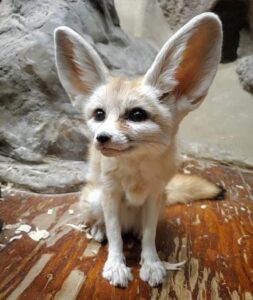
Living Space
Fennec Foxes are small animals, but they are highly active and require plenty of space to roam. Ideally, they should be housed in an enclosure with a large floor area and secure walls, as they are excellent climbers and diggers. A spacious indoor cage or dedicated room in your home is necessary to allow them to express natural behaviors.
If you plan to house a Fennec Fox in an outdoor enclosure, ensure that the area is secure, free from predators, and designed to provide them with a suitable environment. The enclosure should have areas where the fox can burrow, climb, and explore, similar to their natural desert habitats.
Temperature and Humidity
Fennec Foxes are adapted to extreme temperatures and can handle heat well. However, they are not suited for cold climates, and exposure to low temperatures can lead to health problems. Make sure to maintain a comfortable temperature (70-80°F) in their living space and avoid sudden temperature fluctuations.
Diet
Fennec Foxes are omnivorous, which means they eat both plant and animal matter. Their diet should include a variety of foods, such as:
- High-quality commercial dog food or specially formulated fox food
- Fruits and vegetables like apples, bananas, carrots, and leafy greens
- Insects such as crickets and mealworms (which mimic the insects they would catch in the wild)
- Occasional proteins like cooked chicken or eggs
Avoid feeding them human junk food or highly processed foods, as it can lead to health problems. Learn More on Fennec Fox Dieting
Exercise and Enrichment
Fennec Foxes are very active animals and need regular exercise and mental stimulation. They are known for their digging and burrowing behavior, so providing a safe space where they can dig will help keep them mentally engaged. Playtime is essential, and you can enrich their environment with toys, tunnels, and puzzles that challenge their problem-solving skills.
Grooming
The Fennec Fox has a thick, soft coat that requires occasional grooming to prevent matting. Regular brushing will keep their fur clean and healthy. Additionally, you should keep an eye on their ears, as their large ears are prone to accumulating dirt and wax, requiring periodic cleaning.
5. Behavioral Traits and Temperament of Fennec Foxes
Fennec Foxes are known for being active, curious, and playful animals. They tend to be nocturnal, which means they are most active at night, and their energy levels can be quite high in the evening.
Social Nature
In the wild, Fennec Foxes live in family groups, and they are social animals. However, they are not domesticated animals, and while they may bond with their human caretakers, they may still retain their wild instincts. These instincts can make them challenging to handle for first-time pet owners, and they may not be as trainable or docile as domesticated animals like dogs or cats.
Training and Potty Training
Training a Fennec Fox can be challenging due to their independent nature. They are intelligent and can learn basic commands, but they are not as eager to please as dogs. Positive reinforcement methods, such as treats and praise, work best.
Potty training is also an essential part of owning a Fennec Fox. Since they have a natural inclination to dig, setting up a designated area for them to relieve themselves can be helpful. However, accidents may happen, especially if the fox is still adjusting to its new environment.
6. The Ethical Considerations of Buying a Fennec Fox
When considering purchasing a Fennec Fox, it is important to take into account the ethical implications of owning an exotic animal. Wild animals, including Fennec Foxes, are often taken from their natural habitats and may suffer from the stresses of captivity.
Impact on Wild Populations
Even though Fennec Foxes are not currently endangered, the growing demand for them as pets can contribute to the depletion of wild populations. Illegal poaching and the exotic pet trade continue to be significant threats to their survival. Always choose a responsible breeder who operates legally and follows ethical breeding practices.
Wildlife Conservation
Instead of supporting the exotic pet trade, consider supporting wildlife conservation efforts. Many organizations focus on protecting the habitats of Fennec Foxes and other desert species. By supporting conservation programs, you can contribute to the preservation of these animals in the wild.
7. Fennec Fox for Sale: Where to Buy Responsibly
If you have decided that a Fennec Fox is the right pet for you, it is essential to find a reputable and responsible source for purchasing. It is crucial to avoid purchasing animals from the illegal or unethical pet trade.
Reputable Breeders
Look for breeders who specialize in Fennec Foxes and have experience in breeding and raising them in humane, ethical conditions. Reputable breeders will have the necessary permits and documentation and will ensure that the foxes are bred in a manner that promotes their health and well-being.
Adoption and Rescue
In addition to purchasing from breeders, consider adopting a Fennec Fox from a rescue organization or sanctuary. Some organizations specialize in rescuing exotic animals and providing them with care in a safe, supportive environment. Adopting a Fennec Fox helps provide a second chance for animals that might have been mistreated or abandoned.
Conclusion
Fennec Foxes are fascinating, intelligent, and playful creatures that can make wonderful pets for the right owner. However, owning a Fennec Fox requires a deep commitment to their care, as well as an understanding of the ethical and legal considerations involved.
Before purchasing a Fennec Fox, it’s important to ensure that you’re fully prepared to provide a suitable environment, a proper diet, and plenty of attention. Be sure to check the legal requirements in your area, and always consider the welfare of the animal before making a decision.
By choosing to buy responsibly and supporting conservation efforts, you can help protect these amazing animals and ensure that they remain a part of our natural world for generations to come.
Certainly! Here are FAQs (Frequently Asked Questions) related to Fennec Foxes that will help further elaborate on common inquiries and enhance the SEO content for your article:
FAQs: Everything You Need to Know About Fennec Foxes
1. What is a Fennec Fox?
A Fennec Fox (Vulpes zerda) is the smallest species of fox, native to the Sahara Desert and other parts of North Africa. Known for its large ears, which help with thermoregulation and keen hearing, the Fennec Fox has a small body covered in soft, cream-colored fur. This nocturnal and social creature is well adapted to desert life, where it uses its acute sense of hearing to locate prey such as insects, small rodents, and plants.
2. Are Fennec Foxes Legal to Own?
The legality of owning a Fennec Fox varies depending on your country or state. In some places, it is illegal to keep them as pets due to their wild nature and status as exotic animals. In the United States, states like California and New York have strict regulations regarding exotic pet ownership, including Fennec Foxes. Always check local laws and ensure that you can meet the legal requirements, such as obtaining permits if necessary.
3. Can Fennec Foxes be kept as pets?
Yes, Fennec Foxes can be kept as pets, but they require significant care, time, and attention. As exotic animals, they are not domesticated like dogs or cats, and they retain many wild instincts. They can make good pets for the right owner, but they need space to roam, regular mental stimulation, and a suitable environment that mimics their natural desert habitat.
4. How long do Fennec Foxes live?
Fennec Foxes can live up to 12 to 14 years in captivity if they are provided with proper care, a balanced diet, and a suitable living environment. In the wild, their lifespan is typically shorter due to predators, disease, and environmental stressors.
5. What do Fennec Foxes eat?
Fennec Foxes are omnivorous, meaning they eat both plant and animal matter. In captivity, their diet should include:
- High-quality commercial dog food or specifically formulated fox food
- Fruits and vegetables like apples, bananas, carrots, and leafy greens
- Insects such as crickets and mealworms
- Occasional proteins like cooked chicken, turkey, or eggs
It’s important to avoid feeding them processed human food, which can cause health issues.
6. How big do Fennec Foxes get?
Fennec Foxes are small animals. They typically weigh between 2 and 3.5 pounds (1-1.6 kg) and stand around 8-10 inches (20-25 cm) tall at the shoulder. Their length (from nose to tail) is about 20-24 inches (50-60 cm). Their small size makes them appealing as pets, but it’s important to remember that they still require plenty of space to roam and play.
7. Are Fennec Foxes friendly?
Fennec Foxes are known to be curious, intelligent, and playful animals. However, they can also be quite independent and may not always be as affectionate or trainable as domesticated pets like dogs or cats. While some Fennec Foxes can bond with their human caregivers, they are not naturally inclined to seek out human companionship. Their social nature is more evident when they are with other Fennec Foxes.
8. Do Fennec Foxes make good pets for first-time owners?
Fennec Foxes are not the best pets for first-time owners. They require a high level of care, specialized knowledge, and attention that may be challenging for those without experience with exotic pets. Their nocturnal nature, high energy levels, and wild instincts require an owner who is patient, prepared to meet their needs, and knowledgeable about their care requirements.
9. What is the best environment for a Fennec Fox?
Fennec Foxes are desert animals, so they need an environment that is safe, dry, and temperature-controlled. They are not suited to cold climates and should be kept in a warm, secure space. For outdoor enclosures, it is important to ensure that the area is escape-proof, with high walls and secure fencing. They also need enough space to dig, climb, and explore, as this mimics their natural behavior in the wild.
10. Can Fennec Foxes be litter trained?
Yes, Fennec Foxes can be litter trained, although it may take some time and patience. They tend to prefer a designated area for elimination, and with proper guidance, they can learn where to go. However, since they are not as domesticated as cats or dogs, accidents may happen, and they may not always follow the routine perfectly.
11. Do Fennec Foxes smell?
Fennec Foxes do not have a strong odor, but they do have a musky scent, especially if they are not kept in clean environments. Regular grooming, keeping their living area clean, and proper care will help minimize odors. They may also have a more noticeable smell if they are stressed, unwell, or not properly cared for.
12. Can Fennec Foxes be trained?
Fennec Foxes are intelligent animals and can learn basic commands and tricks. However, they are not as eager to please as dogs and may not respond as readily to training. Positive reinforcement techniques, such as using treats and praise, are the most effective way to encourage learning. It’s important to be patient and consistent in training them.
13. Are Fennec Foxes nocturnal?
Yes, Fennec Foxes are nocturnal, which means they are most active during the night. They are adapted to living in desert environments where the temperature drops significantly in the evening. If you are planning to keep a Fennec Fox, be prepared for late-night play sessions, and be aware that their nighttime activity may disrupt your sleep schedule.
14. What are the risks of owning a Fennec Fox?
Owning a Fennec Fox comes with risks, including:
- Legal issues: It may be illegal to own a Fennec Fox in certain areas, and owning one without the necessary permits could lead to fines or legal action.
- Health risks: Fennec Foxes can carry diseases that can be transmitted to humans, so it’s important to handle them with care and keep up with regular veterinary check-ups.
- Behavioral challenges: Fennec Foxes retain many of their wild instincts, which can make them difficult to manage as pets. They may be destructive, require a lot of attention, and could pose challenges with potty training and socialization.
- Financial commitment: Fennec Foxes require specialized care, which can be expensive. Their diet, veterinary care, and appropriate enclosure setup can be costly over time.
15. How can I find a responsible breeder for a Fennec Fox?
Finding a responsible breeder is crucial to ensure that your Fennec Fox is ethically bred and raised in a healthy environment. Look for breeders who have experience with Fennec Foxes, provide proper socialization, and offer documentation about the fox’s health history. Make sure the breeder is compliant with local laws and regulations. Never purchase a Fennec Fox from an illegal source or through shady means, as this contributes to the ongoing problem of wildlife trafficking.
16. Are Fennec Foxes endangered?
No, Fennec Foxes are not considered endangered. However, they are still impacted by habitat loss and poaching for the exotic pet trade. They are listed as “Least Concern” by the International Union for Conservation of Nature (IUCN), but their populations could decline if illegal poaching and habitat destruction continue. Conservation efforts are vital to preserving their natural habitats.
17. Can Fennec Foxes live with other pets?
Fennec Foxes are generally not recommended to live with other pets, particularly smaller animals such as rodents, birds, or reptiles, as they are natural predators. If you are considering keeping a Fennec Fox alongside other pets, it’s essential to carefully manage interactions to ensure everyone’s safety. Additionally, because Fennec Foxes can be territorial, introducing them to other animals should be done cautiously.

